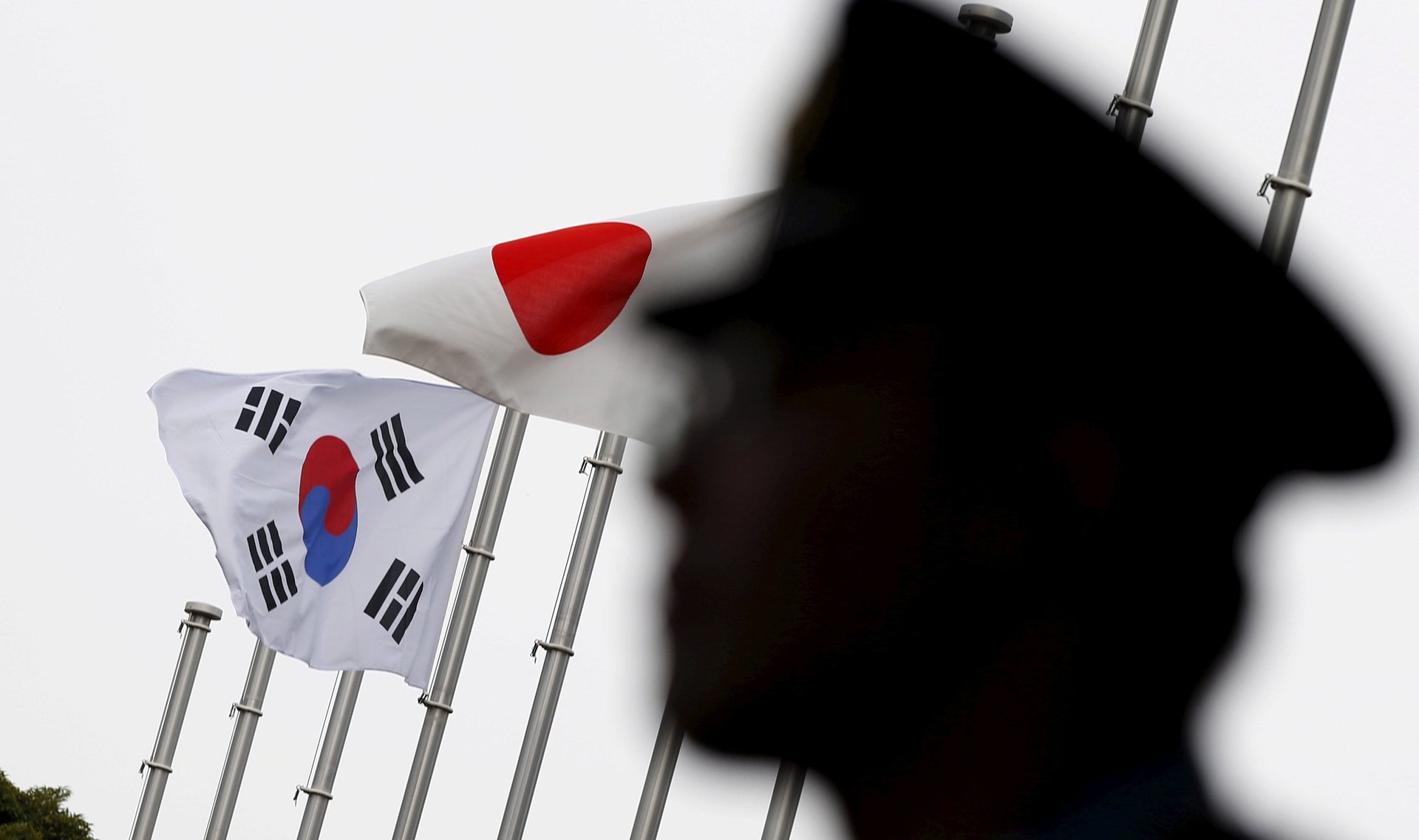South Korea’s turning to the WTO over Japan’s weaponization of trade
With no one willing to mediate, South Korea’s taking on Japan at the World Trade Organization over export restrictions that could hinder its production of smartphones and phone components.


With no one willing to mediate, South Korea’s taking on Japan at the World Trade Organization over export restrictions that could hinder its production of smartphones and phone components.
South Korea’s trade minister announced the move this morning (Sept. 11) soon after the WTO issued a final ruling in favor of Japan in an older case (paywall) about anti-dumping duties that South Korea had imposed on Japanese products.
Japan cited “national security” concerns when it put in place new restrictions in July on the export to its neighbor of three chemicals necessary for the production of semiconductors and screens. South Korea is a major manufacturer of these components, not only for phones produced by its own companies but also for those made by US smartphone maker Apple and China’s Huawei. South Korea’s trade minister said today that Japan, which dominates the supply of the chemicals, is engaging in “politically motivated” use of trade curbs.
Samsung Electronics, the country’s crown jewel, is the world’s most important producer of smartphone chips. Despite the Japanese move, the company has pushed ahead with its plan to launch new phones this fall, including the Galaxy Note 10 and its much touted foldable phone. However, it canceled all preorders for the Fold, telling customers via email that it was “taking the time to rethink the entire customer experience.” It’s unclear if the move was related to Japan’s restrictive move, according to which the export of each batch of the chemicals requires separate permissions. Last month, Japan also dropped South Korea as a preferred trading partner, restricting the export of hundreds of other products, many of them part of the tech supply chain.
South Korea could initiate a similar move against Japan by the end of this month. Its consumers are already boycotting Japanese goods, and Japan as a destination, leading to a drop in Tokyo’s tourism earnings.
A World Trade Organization ruling, which could take more than a year to hand down, may resolve the immediate dispute over the chemical curbs. But it won’t address the historical rift between the two countries that is at the heart of the recent deterioration in relations. Japan occupied the Korean peninsula for over three decades and forced Koreans to work in its factories and brothels for Japanese soldiers during World War II.
Last year, South Korea’s top court ruled that Nippon Steel, Japan’s largest steelmaker, should pay nearly $90,000 to a surviving worker, and three families of Koreans who experienced forced labor—a moved that angered Tokyo. More such cases are continuing in South Korean courts. A 1965 treaty restored relations between the two nations, and saw Japan give hundreds of millions of dollars toward South Korea’s development. However, many Koreans feel it didn’t resolve the issue of compensation for individual suffering, and that Japan has never been sorry enough.